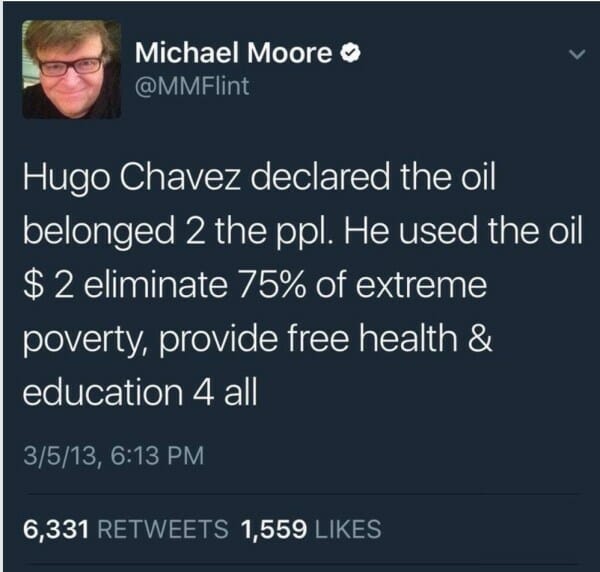The New Totalitarianism: Will It Escape Campuses Into the Broader World?
In an authoritarian regime, those in power demand obedience but not necessarily agreement from their subjects. Even if many of their subjects might oppose the regime, the rulers are largely content as long as everyone obeys, no matter how grudgingly.
Totalitarians are different. They demand not only obedience but lockstep belief. In some sense they combine authoritarian government with a sort of secular church where attendance every Sunday is required and no heresy of any sort is permitted. Everything is political and there is no space where the regime does not watch and listen. Even the smallest private dissent from the ruling orthodoxy is not permitted. Terror from the state keeps everyone in line.
I have tried out a lot of words in my head that are less inflammatory than "totalitarian" to describe the more radical social justice elements on modern college campuses, but I can't find a word that is a better fit. The attempts to drive out dissenting voices through modern forms of social-media-fueled mob terror are both scary and extremely disheartening.
I was thinking about all this in reading an article about Camille Paglia and the students and faculty of her own university who are trying to get her thrown out. I find Paglia to be consistently fascinating, for the very reason that the way her mind works, the topics she chooses to focus on, and sometimes the conclusions she draws are very different from my own experience. The best way to describe her, I think, is that we have traditional axes of thought and she is somewhere off-axis.
Anyway, after horrifying Conservatives for many decades, Paglia has over the last few years run afoul of the totalitarian Left. One example: (emphasis added)
Camille Paglia, the controversial literary and social critic who identifies both as queer and trans, is drawing fire yet again. Students at her own institution, the University of the Arts (UArts) in Philadelphia, are calling for her to be fired. An online petition, currently with over 1,300 signatures, reads in part:
Camille Paglia should be removed from UArts faculty and replaced by a queer person of color. If, due to tenure, it is absolutely illegal to remove her, then the University must at least offer alternate sections of the classes she teaches, instead taught by professors who respect transgender students and survivors of sexual assault.
Another demand in the petition is that, if she can't be canned, the university will stop selling Paglia's books on campus and permanently disallow her from speaking on campus outside of her own classes. Although it's mostly non-faculty speakers who get deplatformed, Paglia is merely the latest target being attacked by students from her own institution. Students at Sarah Lawrence, for instance, are calling for political scientist Samuel Abrams to be fired for writing an op-ed in The New York Times calling for ideological diversity among administrators.
Paglia's critics claim that, despite her own alternative sexual identity, she is so hostile and bigoted towards trans people that her mere presence on campus constitutes an insult or threat. There's no question that she has been dismissive of some claims made by trans people and, even more so, dismissive of students who claim that being subjected to speech with which they disagree is a form of trauma.
What I got to thinking about is this: How far away are we from "her mere presence on campus" constituting a threat to being threatened by "her mere presence in the same country?" I fear it may not be very long.
Postscripts: I wanted to add a couple of postscripts to this story
- I find that the "mere presence is a threat" argument being deployed by LGBT activists is extremely ironic. In the camping business I run we have always had a disproportionate number of gay couples managing individual campgrounds. Fifteen years ago I remember twice getting push back from people in the surrounding community (both times in southern, more traditionally religious areas) that the very presence of gay men around young children constituted a threat. I thought this argument was complete nonsense and basically told the protesters to pound sand. But it is ironic for me to now hear LGBT activists deploying the "mere presences is a threat" argument that has been used against them so often in history
- We have clearly dumbed down what constitutes a threat when speech is equated with violence. But have we also dumbed down the concept of terror? People -- particularly university administrators but you see it all over -- constantly fold under the pressure of negative comments on twitter. This sure seems a long way from the SS showing up at your door at 4AM, but amazingly social media terror seems to be nearly as effective an instrument of control. Years ago my dad ran a major oil company and he did it with a real sense of mission, that they were doing great things to keep the world running. But he endured endless bombing threats, kidnapping threats, existential threats from Congress, screaming protests at his doorstep, etc. After being personally listed on the Unibomber's target list, I wonder what he would think about the "threat" of social media mobbing.




